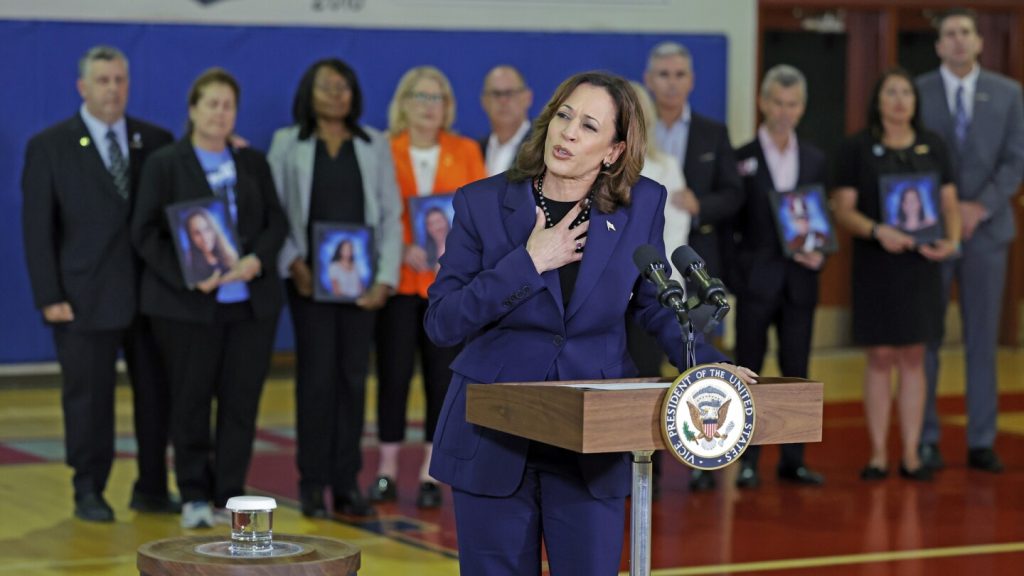Vice President Kamala Harris visited the site of the 2018 Parkland high school massacre, where 14 students and three staff members lost their lives. The school remains frozen in time, with bullet-pocked walls and floors still bearing the signs of the tragic attack. Harris announced a program to assist states with laws allowing police to temporarily seize guns from individuals deemed dangerous by judges. She emphasized the importance of learning lessons from Parkland to prevent and mitigate school shootings. Harris also highlighted the need for stronger gun laws and better school safety measures, noting that shootings are a leading cause of death for children and teenagers.
The shooter, former student Nikolas Cruz, fired about 140 shots from an AR-15-style rifle during the attack, which lasted six minutes and moved through multiple floors of the school. Cruz pleaded guilty in 2021 and was sentenced to life in prison in 2022. The building where the massacre occurred has been preserved for investigation purposes and is set to be demolished soon. Following her tour, Harris announced a $750 million grant program to provide technical assistance and training to states with “red flag laws,” which allow police to temporarily seize guns from individuals deemed dangerous. Harris called for more states to adopt these laws and for a national red flag law to be implemented.
Some lawmakers, including Sen. Rick Scott, criticized the proposed national red flag law, saying it would strip gun owners of their rights. The debate around red flag laws revolves around balancing due process and public safety, with proponents arguing that these laws provide critical information-sharing mechanisms to prevent potential violence. Harris’ visit to the school building was part of ongoing efforts by elected officials, law enforcement, and education leaders to understand the failures that led to the tragic shooting. Victims’ families, along with advocacy groups like Stand With Parkland, are pushing for increased school safety measures and stronger gun laws to prevent future tragedies.
During the tour, Harris met with families of the victims and witnessed the impact of mass shootings firsthand. Some families are advocating for a ban on the sale of AR-15s and similar guns, as they were during the 1994-2004 assault weapons ban. However, there is limited support in Congress for such a ban, with opponents arguing that it would infringe on Second Amendment rights and have minimal impact on reducing gun violence. Harris’ visit to Parkland brought the reality of gun violence prevention to the forefront, as families shared their personal experiences and emphasized the importance of ensuring school safety. While there may be disagreements over gun laws, measures to enhance school safety could potentially bridge the divide and save lives in the future.


